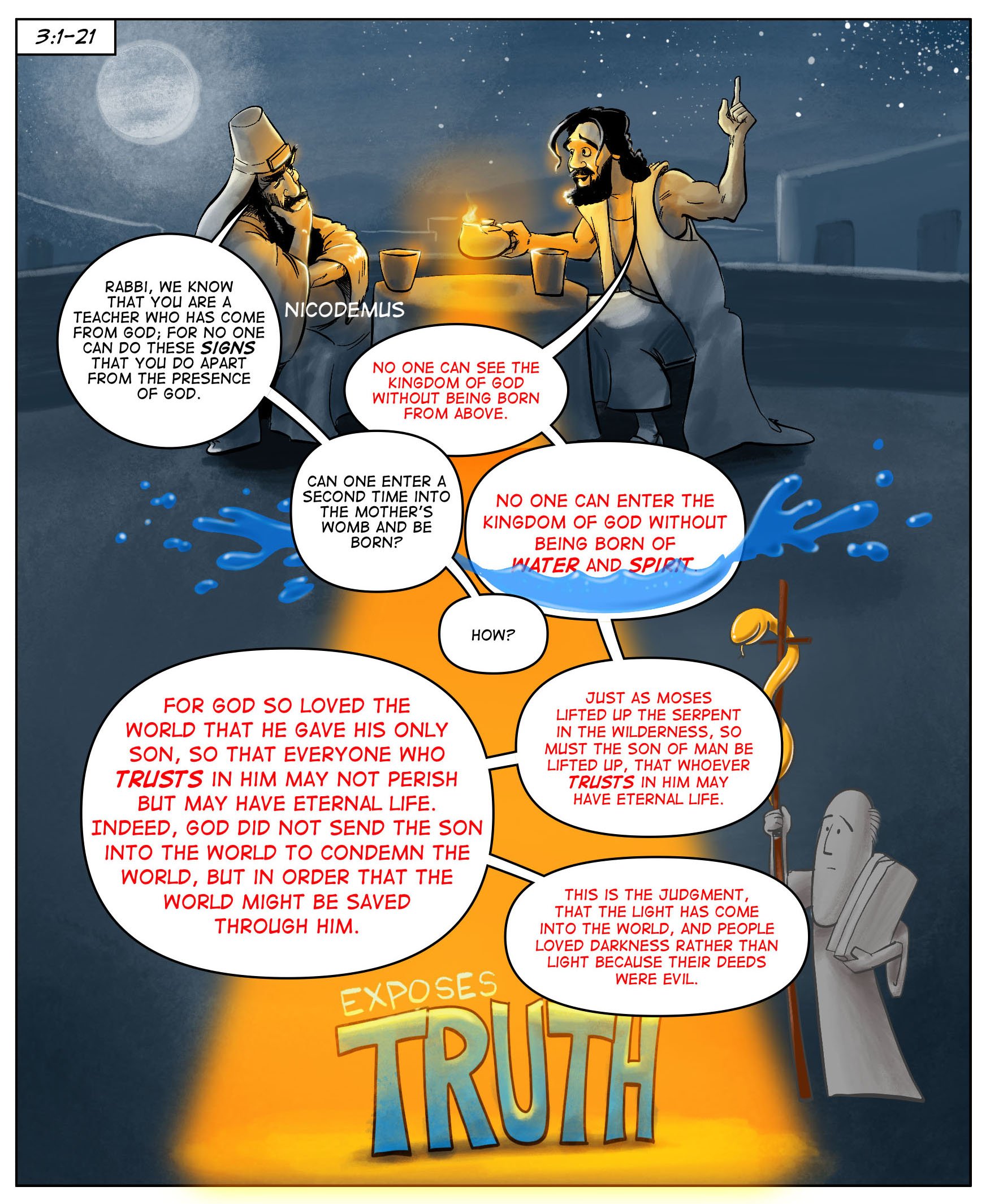Grow Guide | Jan 23, 2022
I Am
John 3:1-21
Connecting Questions
Have you ever had a moment when you thought you saw something in the dark, but when the light was turned on, it was something else? Tell the story.
List all the uses/benefits of water.
Context
We continue our series--I Am--through the Gospel of John this week by eavesdropping on a conversation between Nicodemus and Jesus. Nicodemus is a respected religious leader in Jerusalem. Remember that Jesus has just publicly rebuked the leaders in the Temple when he overturned the money-changing tables (John 2:13-25). The leaders questioned him in that scene. Now, Nicodemus’ questions, and the ensuing conversation, let us dig deeply into Jesus’ response.
Look at the Book
Read John 3:1-3.
What does Nicodemus acknowledge about Jesus’ identity?
Why do you think Nicodemus came to Jesus at night?
In verse three, the NRSV translation says, “no one can see the kingdom of God without being born from above.” The Greek phrase can mean “born again,” “born anew,” “born from above.” What might these different translations mean?
Read John 3:4-11.
How does Nicodemus respond to Jesus’ bold statement about new birth?
Jesus says that a person must be born of water and spirit to enter the kingdom. Think about the opening poem of John (John 1:1-18) and the connections to the creation story. What might the images of water and spirit mean for the new birth Jesus mentions?
Note: Nicodemus’ question “How can these things be?” is the driving question of the entire Gospel of John, and one that we continue to ask. How might continuing to ask this question draw us deeper into Jesus’ response?
Read John 3:11-21.
The term translated believe is the Greek word pisteuo. It is also translated faith and trust. Read this passage again and replace the word believe with the word trust. Does it change your interpretation at all?
In verse 11, the term “you” shifts from the singular to the plural “y’all.” Jesus is no longer talking to Nicodemus alone, but to all the people of Israel and to the reader. The writer of John does this throughout the Gospel and preaches to the reader through the words of Jesus. How might this change your reading of the passage?
What is the primary motivation for God’s actions (verses 16-17).
If you have time, read Numbers 21:4-9. In what ways might Jesus’ death, burial, resurrection and ascension be like the serpent in this story?
List the differences between those who stand in the light and those who stand in the darkness?
What effect does the light have on people and the world?
Taking it Home
One challenging part of this passage is that it contains one of the most famous verses in the Bible (John 3:16) that has been interpreted and applied in various ways. Does reading this verse in the context of Jesus’ conversation with Nicodemus change your understanding of the verse at all?
A key phrase in this passage is that God’s love is for the whole world. This stands in stark contrast to the common belief among many Jewish leaders of Jesus’ day that God only loved the Jews. It is important to note that this encounter with Nicodemus stands in contrast to the next story when Jesus encounters a Samaritan woman (John 4:1-26). She represents the world whom God loves. In what ways are we tempted to resist the belief that God actually loves the whole world and not just people like us?
Based on this passage, fill in the blank: Jesus is ______.

